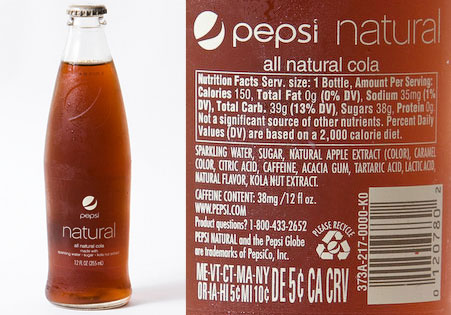Last week I attended a conference in Washington DC with the lofty title: “3rd Advanced Regulatory and Compliance Summit on Food & Beverage Marketing & Advertising.” The event’s main sponsor was the law firm of Faegre Baker Daniels, whose numerous mega-corporate food clients include Cargill, Dean Foods, and Nestlé. In addition, the firm represents (under the heading of “crop protection“) Big Biotech players such as Bayer, Dow, and DuPont. The presenters were almost all industry lawyers, with a few government types. Not one member of the plaintiffs bar or anyone from a public interest organization was a speaker, and it seemed most of the audience was also from industry.

Food Law
Ask a Food Lawyer: What does “natural” mean on food labels?

Short answer: Next to nothing.
With the nation finally waking up to the sad reality that truly healthy food doesn’t come in a box, food manufacturers are desperate to keep shoppers fooled into thinking highly processed food products are good for them. How do companies get away with this? Because the federal government lets them.
But it’s not for a lack of trying.
Why Center for Science in the Public Interest is Wrong Not to Support Genetically Engineered Food Labeling
By Michele Simon and Andrew Kimbrell
You may have noticed the impressive grassroots movement gathering steam lately over the labeling of genetically engineered (GE) foods. Recently, Connecticut became the first state in the nation to enact a law to require such labels, and 26 other states have introduced similar bills this year. Millions of Americans are demanding more transparency in the food supply and our elected officials are finally responding, after decades of work by groups like Center for Food Safety. But one advocacy group, Center for Science in the Public Interest (CSPI), often seen as a leader in nutrition policy, stands virtually alone in its continued opposition to labeling GE foods. This stance is troubling and confusing given how outspoken CSPI has been for decades on food labeling and consumer information.
Read rest at Center for Food Safety.
New Blog Series: Ask a Food Lawyer
Have you ever wondered:
- What does “natural” mean on food labels?
- Do corporations really have a free speech right to advertise to children?
- Why are some foods containing hydrogenated oils still labeled “zero grams trans-fat?”
- Why can’t we just sue the food industry for making people sick?
These are just some of the questions that I’ve received from curious readers. For this new blog series, I will answer these and other questions related to the exciting and still emerging, but critical area of food law.
Top 10 Crusaders in the Food Movement – Lawyer Edition
Last year, I wrote about this topic out of frustration that lists like this one tend to neglect an entire profession. It seems one year later, this serious omission continues to persist. And just to prove my point, my 2013 list does not repeat any of the lawyers I listed in 2012, but be sure to check them out too as they are still deserving of the recognition.
Monsanto Teams up with Congress to Shred the Constitution
Our founding fathers, white-maleness aside, did get a few things right. One of them was the concept of “separation of powers,” to ensure a system of checks and balances among the three branches of government: executive, legislative, and judicial. But a dangerous provision snuck into the budget bill passed last week in Congress upends that system. Continue reading →
3 Steps to Protecting Food Stamps from a Cruel Congress
As expected, the House version of the 2012 farm bill contains deep cuts to the Supplemental Nutrition Assistance Program (SNAP, formerly called food stamps). With its $16 billion proposed cut in this critical safety net, the House leadership is about three times as cruel as the Senate, which already approved a $4.5 billion reduction over 10 years. If the House gets its way, two-three million Americans could go hungry. In addition, 280,000 kids could get kicked off the school meal program because their families’ eligibility is tied to SNAP. And speaking of kids, almost half of all SNAP participants are children.














